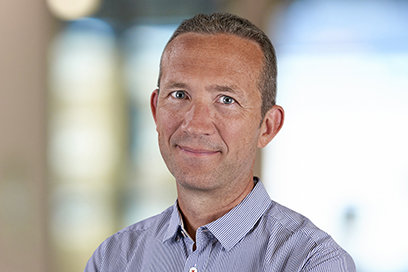At a recent panel discussion on climate action for SMEs, organized by Heart of the City, Berkeley had the opportunity to share our sustainability ambitions, the progress we’ve made so far, and how we think SMEs can get started on their own net zero journeys.
Here are some of the key discussion highlights from partner Jon Bradbury, who spoke at the event.
What’s been your involvement with Heart of the City to date and why have you started on your journey to net zero?
We believe every individual and every organization needs to take action towards sustainability. It’s not only the right thing to do but essential for long-term business success. For us, it was important that we take real action towards achieving meaningful change, rather than paying lip service to the idea.
At the same time as we were developing our approach, Heart of the City, an organization dedicated to helping SMEs with their corporate social responsibility, was putting together a climate action toolkit and training course for London-based SMEs. And they were looking for suitable organizations to join a pilot program.
After our client, the City of London Corporation – a key supporter of the Heart of the City – put us in touch, we were invited to take part in the pilot. Most of our sustainability working group members attended the training course over a three-month period and really valued the opportunity to learn and share best practice with other SMEs.
Are you seeing any increase in levels of interest in climate action from within your company or from clients? Why do you think that is?
Absolutely. Climate action is a key concern for both internal and external stakeholders. Our own people care deeply about sustainability and want Berkeley to take its responsibility seriously. They want us to take concrete steps towards reducing our carbon impact, starting by investing in carbon offsetting as an immediate priority and then setting up longer-term science-based targets and driving forward carbon reduction activities to achieve net zero.
On the client side, we’ve seen sustainability become an increasingly important issue. Consumers and B2B customers are demanding more from companies, who in turn are requiring action and proof from vendors as part of tackling their overall carbon footprint. For example, our client Unilever is asking all existing suppliers to commit to cutting emissions, and prioritizing new suppliers who have already set science-based emissions targets. Accounting for sustainability is now a key part of doing business. We are seeing this more and more as standard in clients’ procurement processes.
Many might think that addressing climate change is just for large businesses and too difficult for a small business without dedicated resource to put to it. What would you say to that and how have you allocated your time and resources?
Many SMEs understandably find climate action daunting and may not know where to start. It’s not an easy challenge to tackle, but once you develop your basic understanding of what needs to be done, you’ll see that it’s not insurmountable. Sustainability is absolutely achievable, even without a big team. As COP26 takes place, we have seen business groups such as the Institute of Directors and the Federation of Small Businesses highlighting the role of SMEs can play and seeking to empower and support them to take action.
Berkeley has been able to make significant progress despite not having any full-time resources dedicated to sustainability. Our people are passionate and prepared to do the work because it’s genuinely important to them. We now have a sustainability working group, who are progressing our plans towards becoming carbon neutral and achieving net zero across five workstreams: Measure, Offset, Reduce, Communications & Engagement, and Client.
So far, we have completed a comprehensive measurement of our carbon footprint, which covered Scopes 1, 2 and 3, i.e. both direct and indirect emissions (such as those that arise from working from home and the products and services we buy). Our next steps will take us to carbon neutrality and we’re currently working out our carbon reduction program to get us to net zero beyond that.”
Good leadership is also crucial and change must start at the top. We have two partners who sponsor our sustainability work and ensure it remains high on our agenda.
Finally, SMEs need to consider communications and engagement as a key element. At Berkeley, we believe we can play an important role in educating and encouraging our people to make responsible choices as individuals (for example, choosing to invest their pensions in ethical or green funds). It’s critical that the whole organization is working together on sustainability as a common goal.
Do you believe that committing to a net zero plan will in time help your business to succeed? If so, how?
It certainly will. As well as meeting the demands from consumers and business customers we’ve already discussed, action on sustainability is increasingly important for talent management and recruitment. People want to join organizations with purpose. They want their own work and the work of their organization to make a positive contribution for sustainability and broader social good.
In addition to our commitment to reaching net zero as a business, we also enable our people to support sustainable causes through their individual work. For example, we have provided pro bono consulting services to Toast Ale, who help fight food waste by using surplus bread to brew their award-winning beer. We also worked pro bono with Chapter Zero (the Director’s Climate Forum) and the University of Cambridge to develop a climate change toolkit, which is specifically aimed at non-executive directors who want to ensure that the impact of climate change is considered as part of their organization’s strategy.
You need to get this right if you want to attract the best talent and ensure your long-term performance. This is particularly crucial for professional services industries like ours, which are inherently people focused.
A net zero plan won’t just help your business. In the future, business success will be fully dependent on sustainability. It’s no longer just a nice-to-have. The likelihood is high that we will see future regulation mandating the adoption of carbon emissions targets, waste reduction, and other sustainability measures. The smartest businesses are the ones who are getting ahead of such legislation and doing the right thing now. If you want to be successful, you need to be sustainable.







